- 《答聶文蔚》 [2017/04]
- 奧巴馬致女友:我每天都和男人做愛 [2023/11]
- 愛國者的喜訊,干吃福利的綠卡族回國希望大增 [2017/01]
- 周五落軌的真的是個華女 [2017/03]
- 現場! 全副武裝的警察突入燕郊 [2017/12]
- 法拉盛的「雞街」剛剛又鬧出人命 [2017/11]
- 大部分人品太差了--- 中國公園裡的「黃昏戀」 [2019/12]
- 亞裔男孩再讓美國瘋狂 [2018/09]
- 年三十工作/小媳婦好嗎 /土撥鼠真屌/美華素質高? [2019/02]
- 看這些入籍美加的中國人在這裡的醜態百出下場可期 [2019/11]
- 黑暗時代的明燈 [2017/01]
- 文革宣傳畫名作選之 「群醜圖」 都畫了誰? [2024/01]
- 當今的美國是不是還從根本上支持中國的民主運動? [2017/10]
- 香港的抗爭再次告訴世人 [2019/06]
- 中國女歡呼日本地震 歐洲老公驚呆上網反思 [2024/01]
- 加入外國籍,你還是不是中國人?談多數華人的愚昧和少數華人的覺醒 [2018/02]
- 周末逛法拉盛,還是坐地鐵? [2017/10]
- 春蠶到死絲方斷, 丹心未酬血已干 [2017/03]
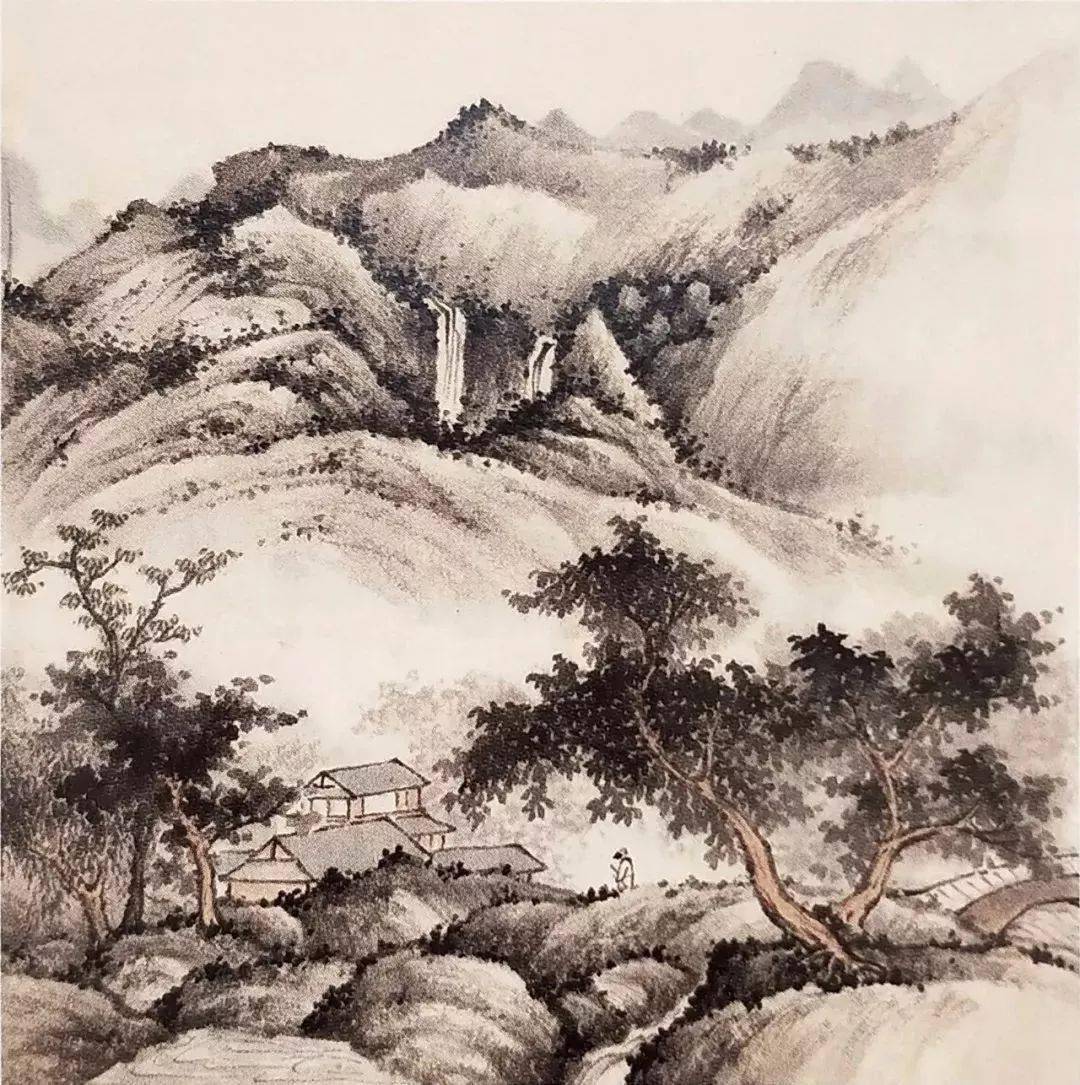
秋風引 劉禹錫
何處秋風至 蕭蕭送雁至
朝來入庭樹 孤客最先聞
Ode to the autumn wind
Where does the autumn wind come from
rising it sees off the geese
entering courtyard trees at dawn
it wakes a lone traveler first
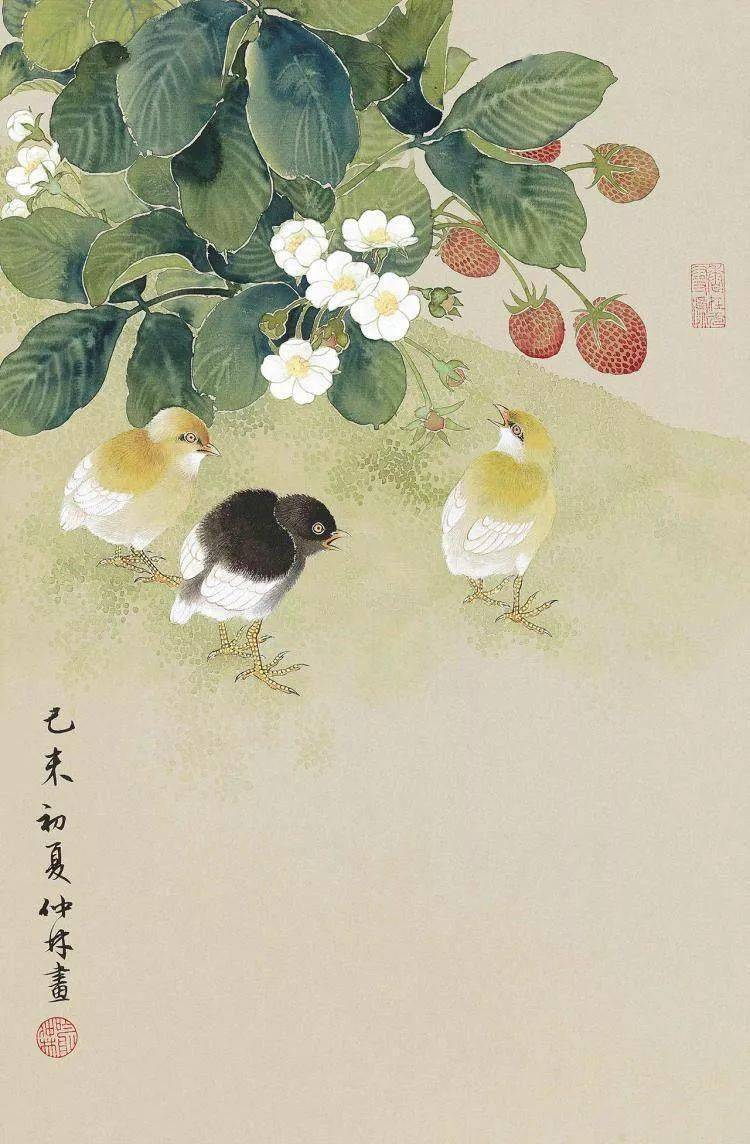
這首詩主要要表達羈旅之情,但妙在不從正面著筆,始終只就秋風做文章,在篇末雖然推出了「孤客」,也只寫到他「聞」秋風而止。至於他的旅情歸思是以「最先」兩字來暗示的。如照說,秋風吹到庭樹,每個人都可以同時聽到,不應當有先後之分。而惟獨孤客「最先」聽到,可以想見,他對時序、物候有特殊的敏感。而他如此敏感的原因。這就是對「最先聞」的解釋。諸家評語都稱讚這一結句曲折見意,含蓄不盡,為讀者留有可尋味的深度。從全詩看來,卻必須說「不可聞」,才與它的蒼涼慷慨的意境、高亢勁健的風格相融浹。兩個結句,內容相似,一用曲筆,一用直筆,卻各盡其妙。
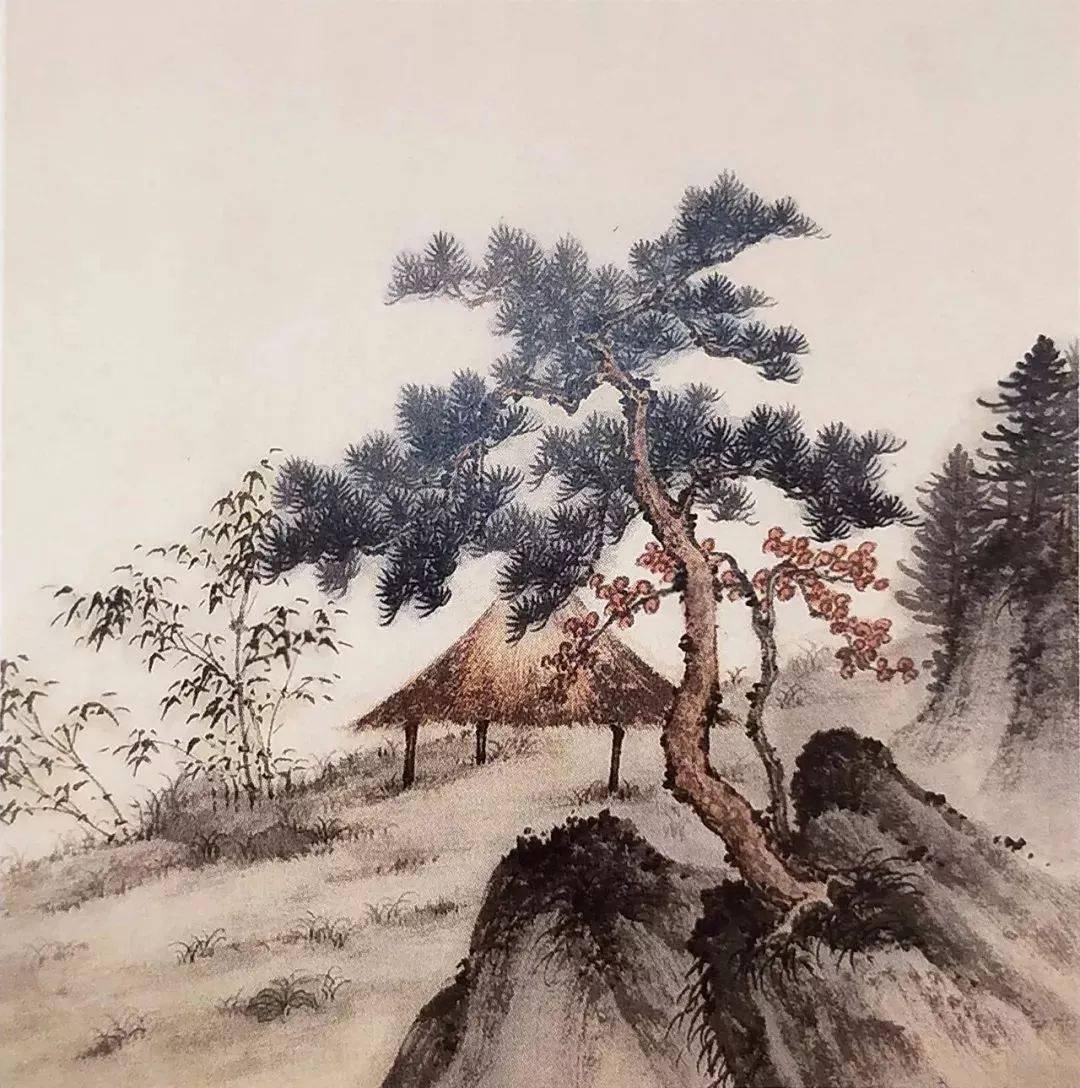
翻譯這首詩的美國著名譯者Red Pine 是這樣介紹作者和這首詩的:
劉禹錫(772-842)出生於運河名城徐州的一個儒家家庭。 儘管他擔任過太子參事、禮部副郎等重要職務,但因寫諷刺當權者的詩而兩度被貶。
秋風讓劉想起他生命中夏天的結束和失去皇寵。 他像大雁一樣,向南飛去,遠離他被流放的首都。 但與雁不同的是,他是獨自旅行。 庭院是旅人客棧的庭院。
(Liu Yu-hsi (772-842) was born in the Grand Canal town of Hsuchou to a family of Confucian scholars. Although he held several important posts, such as advisor to the heir apparent and vice-minister in the Ministry of Rites, he was twice demoted because of poems he wrote satirizing those in power. The autumn wind reminds Liu of the end of the summer of his life and of the loss of imperial favor. Like the geese, he is headed south, away from the capital from which he has been banished. But unlike the geese, he is traveling alone. The courtyard is that of a traveler's inn)
(Liu Yu-hsi (772-842) was born in the Grand Canal town of Hsuchou to a family of Confucian scholars. Although he held several important posts, such as advisor to the heir apparent and vice-minister in the Ministry of Rites, he was twice demoted because of poems he wrote satirizing those in power. The autumn wind reminds Liu of the end of the summer of his life and of the loss of imperial favor. Like the geese, he is headed south, away from the capital from which he has been banished. But unlike the geese, he is traveling alone. The courtyard is that of a traveler's inn)
劉禹錫(772-842),字夢得,漢族,中國唐朝彭城(今徐州)人,祖籍洛陽,唐朝文學家,哲學家,自稱是漢中山靖王後裔,曾任監察御史,是王叔文政治改革集團的一員。唐代中晚期著名詩人。
永貞革新,又稱永貞改革,指中國唐朝中期唐順宗依靠王伾、王叔文,進行的試圖打擊宦官特權的政治革新運動,此運動得到新晉士族的支持,受到守舊大臣的反對,最後宦官俱文珍等人逼唐順宗內禪予其子唐憲宗,是為永貞內禪,改革結束,推動改革的二王八司馬均遭貶斥。
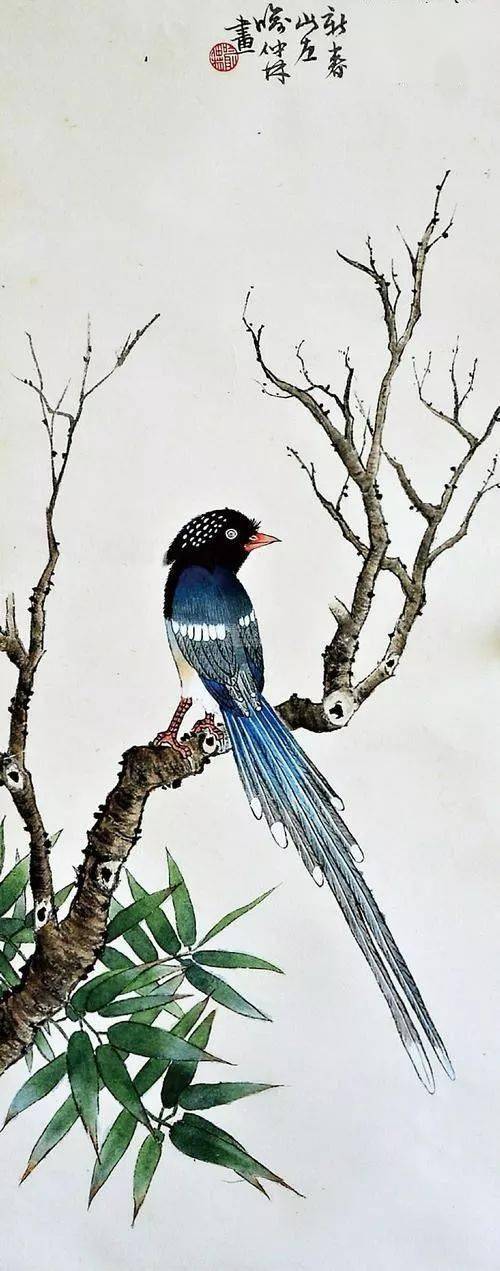
《秋夜寄丘二十二員外》是表達作者在秋夜對隱居朋友的思念之情。前半首寫作者自己,即懷人之人;後半首寫正在臨平山學道的丘丹,即所懷之人。全詩從容落筆,淺淺著墨,語淡而情濃,言短而意深,格調古樸雅緻,安閑恬淡,給人以玩味不盡的藝術體驗。丘二十二員外:名丹,蘇州人,曾拜尚書郎,后隱居臨平山上。丘,一作「邱」。
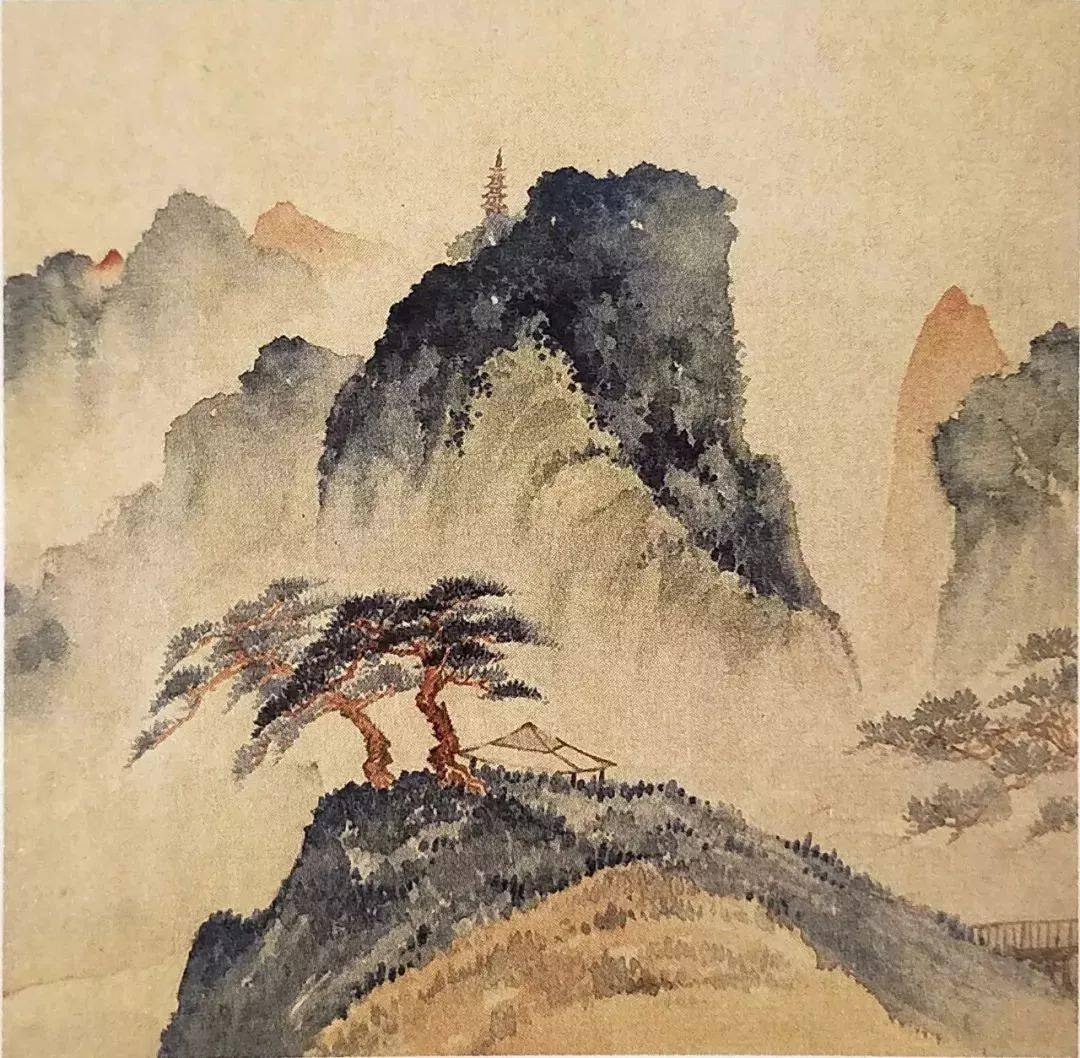
秋夜寄丘員外 韋應物
懷君屬秋夜 散步詠涼天
山空松子落 幽人應未眠
To Secretary Ch』iu on an Autumn Night
Out walking and singing of cooler days
I think of you on an autumn night
pinecones falling on deserted slopes
the recluse I suspect not yet asleep
I think of you on an autumn night
pinecones falling on deserted slopes
the recluse I suspect not yet asleep
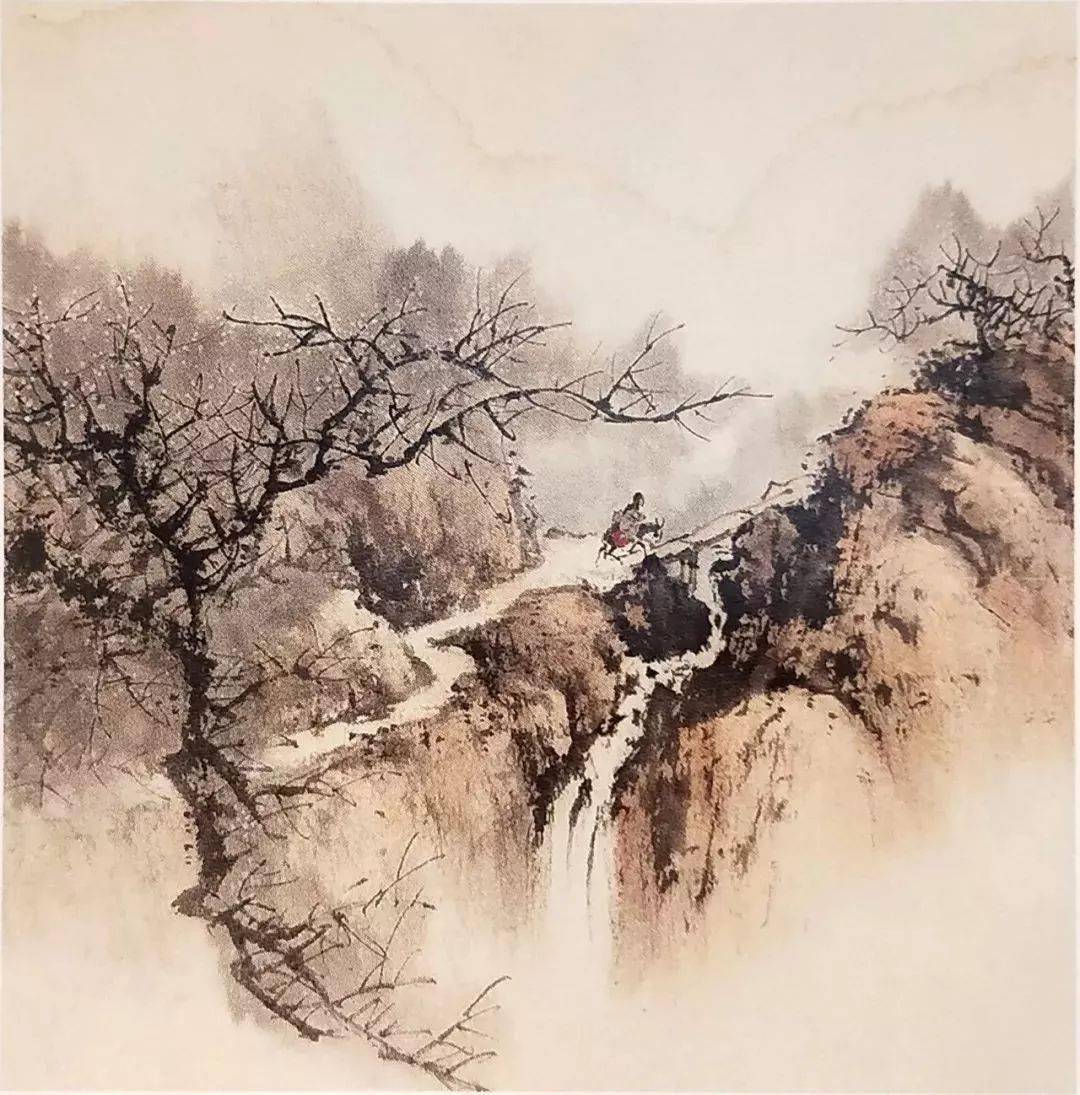
英譯者Red Pine這樣說明這首詩的:
這首詩是韋應物(737-792)寫給丘蔚之弟丘丹的。 韋應物當時擔任蘇州太守,丘丹曾短暫擔任他的秘書。 丘卻決定寧修道,便辭官渡江,隱居揚州西北門外的平山隱居。 平山也是大明寺所在地。 幾十年前,佛教僧侶釋鑒真方丈離開這座寺廟前往日本,他被認為是將佛教、中醫和漢語介紹給日本人的人。 因此,平山雖然不是一座大山,但山坡上並非完全荒無人煙(譯者把「山空」譯作「deserted slopes」)。不過,現在是第八個滿月,即中秋節,親戚和朋友通常會在一起過夜,韋應物試圖想象他的朋友一定會感到多麼孤獨。 松子仍然是中國隱士的重要食物來源。 但在這裡,韋應物用它們來強調丘丹的孤獨,那裡唯一的聲音是松果掉落的聲音。 還要注意的是,中國這個地區的夏季酷熱難耐,任何秋天的跡象都是受歡迎的——尤其是第一口涼爽的空氣。
(Wei ying-wu (737-792) wrote this poem to Ch'iu Tan, the younger brother of Ch'iu Wei. Wei Ying-wu was serving as prefect of Suchou at the time, and Ch'iu Tan had served briefly as his secretary. However, Ch'iu decided he would rather cultivate the Tao, and he quit his post, crossed the Yangtze, and retired to a hermitage on Pingshan, just outside the northwest gate of Yangchou. Pinghsan was also the location of Taming Temple. Several decades earlier, the Buddhist monk Chief-chen left this temple and travelled to Japan, where he was credited wi5h introducing Buddhism, Chinese medicine, and the Chinese language to the Japanese. Thus, the slopes of Pinghsan, which was not a large mountain,were not exactly deserted. Still, this was the eighth full moon, or the Mid-Autumn Festival , when relatives and friends normally spend the night together, and Wei tries to imagine how lonely his friend must feel. Pine nuts remain an important source of food for recluses in China. But here, Wei uses them to emphasize Ch'iu Tan's isolation, where the only sound is that of falling pinecones. Note, too, that the summers are sweltering in this part of China, and any sign of autumn is welcome--- especially the first breath of cool air. )
這首詩是韋應物(737-792)寫給丘蔚之弟丘丹的。 韋應物當時擔任蘇州太守,丘丹曾短暫擔任他的秘書。 丘卻決定寧修道,便辭官渡江,隱居揚州西北門外的平山隱居。 平山也是大明寺所在地。 幾十年前,佛教僧侶釋鑒真方丈離開這座寺廟前往日本,他被認為是將佛教、中醫和漢語介紹給日本人的人。 因此,平山雖然不是一座大山,但山坡上並非完全荒無人煙(譯者把「山空」譯作「deserted slopes」)。不過,現在是第八個滿月,即中秋節,親戚和朋友通常會在一起過夜,韋應物試圖想象他的朋友一定會感到多麼孤獨。 松子仍然是中國隱士的重要食物來源。 但在這裡,韋應物用它們來強調丘丹的孤獨,那裡唯一的聲音是松果掉落的聲音。 還要注意的是,中國這個地區的夏季酷熱難耐,任何秋天的跡象都是受歡迎的——尤其是第一口涼爽的空氣。
(Wei ying-wu (737-792) wrote this poem to Ch'iu Tan, the younger brother of Ch'iu Wei. Wei Ying-wu was serving as prefect of Suchou at the time, and Ch'iu Tan had served briefly as his secretary. However, Ch'iu decided he would rather cultivate the Tao, and he quit his post, crossed the Yangtze, and retired to a hermitage on Pingshan, just outside the northwest gate of Yangchou. Pinghsan was also the location of Taming Temple. Several decades earlier, the Buddhist monk Chief-chen left this temple and travelled to Japan, where he was credited wi5h introducing Buddhism, Chinese medicine, and the Chinese language to the Japanese. Thus, the slopes of Pinghsan, which was not a large mountain,were not exactly deserted. Still, this was the eighth full moon, or the Mid-Autumn Festival , when relatives and friends normally spend the night together, and Wei tries to imagine how lonely his friend must feel. Pine nuts remain an important source of food for recluses in China. But here, Wei uses them to emphasize Ch'iu Tan's isolation, where the only sound is that of falling pinecones. Note, too, that the summers are sweltering in this part of China, and any sign of autumn is welcome--- especially the first breath of cool air. )
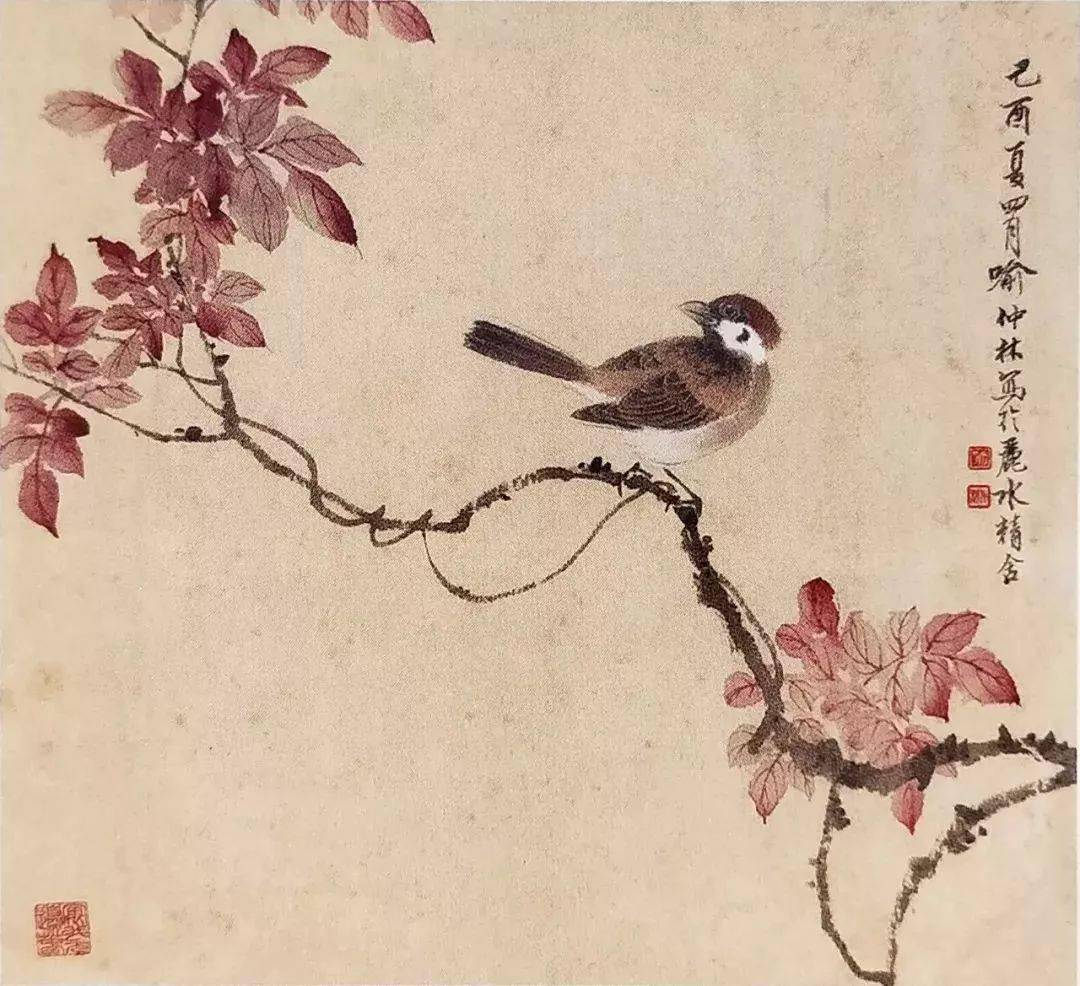
此詩當作於唐德宗貞元四年(788)或五年(789)韋應物任蘇州刺史時。丘員外,即丘丹,排行二十二,曾官倉部員外郎,蘇州嘉興(今屬浙江)人,時丘丹隱於臨平山中學道,韋應物與他屢有往還唱酬。丘二十二員外:名丹,蘇州人,曾拜尚書郎,后隱居臨平山上。丘,一作「邱」。
《秋夜寄丘二十二員外》是韋應物的五絕代表作之一。它給予讀者的藝術享受,首先就是古雅閑淡的風格美。它不以強烈的語言打動讀者,只是從容下筆,淡淡著墨,而語淺情深,言簡意長,使人感到韻味悠永,玩繹不盡。
怪異風格的驚奇候選人?彭博社這樣介紹柯文哲
>> More Videos
如果任何人覺得無聊,那---這首歌觸及到了任何人都無法觸及的靈魂深處,旋律如此流暢,讓你想抓住那個特別的人,用雙臂擁抱他們,活在那一刻,永遠不會離開……祝所有擁有那個特別的人的人好運!
>> More Videos
- [10/14]連線直播空襲加沙--神秘巧合? "見習"開戰!
- [10/15]最有生命力的詩人--陸遊
- [10/15]突發圖文:哈馬斯聖戰日紐約安靜,北京得手?
- [10/16]到底是什麼殺死了李白,杜甫,惠特曼?
- [10/16]抵近直播--以色列坦克群集結完畢 即將地攻
- [10/17] 秋雁最先聞 松子落空山
- [10/22]孤獨者---登山 --
- [10/22]華女在列!美軍一萬兵力抵達沙特空軍基地,美國在準備什麼?
- [10/23]國民劣根性背後----為什麼中國人這麼壞!
- [10/25]美國外交官中國來信之 慈禧如夢(49)
- [10/25]美國外交官中國來信之 良友之殤(50)
- [10/25]論習近平和普京都別無選擇
- 查看:[change?的.最新博文]
- 查看:[大家的.最新博文]
- 查看:[大家的.詩詞書畫]
發表評論 評論 (1 個評論)

- 回復 change?
- 劉禹錫(772年—842年),字夢得,河南郡洛陽縣人。唐朝著名詩人、哲學家,中唐文學的代表人物之一,有詩豪之稱。因曾任太子賓客,故稱劉賓客,晚年曾加檢校禮部尚書、秘書監等虛銜,故又稱秘書劉尚書。
生平
出身背景
劉禹錫的籍貫和族系,不同史料記載差異極大。《舊唐書》記載劉禹錫是彭城郡人,《新唐書》記載他祖先出自中山郡,《元和姓纂》記載劉禹錫世代居住在吉州,屬於長沙定王劉發的後裔廬陵劉氏,劉禹錫自己撰寫的《子劉子自傳》自稱是中山郡人,是漢景帝之子中山靖王劉勝的後裔。岑仲勉認為,劉禹錫自傳稱中山郡人,舊唐書稱彭城郡人,大概都是指郡望。
劉禹錫的七世祖劉亮在北魏任冀州刺史,隨北魏孝文帝遷入洛陽。父親劉緒,之後為了避安史之亂,遷居嘉興。劉禹錫生於嘉興(當時屬蘇州)。劉禹錫幼年即開始學習寫詩,19歲前未曾離開過江南。
文史學家卞孝萱曾提出劉禹錫是匈奴後裔,出生於嘉興的新說,據鄧聲斌考證其父劉緒遭遇安史之亂,舉族東遷定居彭城]]。
永貞革新
主條目:永貞革新
唐德宗貞元九年(793年),劉禹錫參與當年度的科舉考試,並與柳宗元同時位列進士榜上。
又舉博學宏詞科,被拔擢為太子校書。之後,淮南杜佑上表推薦劉禹錫可以管書記,因此升任監察御史。此時的劉禹錫銳意仕途,懷有遠大的政治抱負,與柳宗元等參加主張革新的王叔文政治集團。
貞元二十一年(805年),唐德宗因病駕崩,順宗即位,王叔文集團在皇帝支持下,為解決當時日趨嚴重的社會問題,發動了永貞革新。劉禹錫深受王叔文器重,表現出卓越的才幹,對當時的朝廷有較大的影響力。
兩度貶謫
主條目:二王八司馬
唐順宗即位不久,中風病重,不能發聲,宦官俱文珍、劉光琦等人聯合西川節度使韋皋、荊南節度使裴鈞等逼宮,迫使唐順宗禪讓予太子李純,史稱永貞內禪。李純即位,是為唐憲宗,由於藩鎮和宦官集團的壓力,王叔文的永貞革新宣告失敗,王叔文被賜死,劉禹錫被貶為連州刺史,行至荊南,又改授朗州司馬(今湖南常德)。與劉禹錫一同被貶的共有八人,史稱「八司馬」。據湖南常德歷史學家、收藏家周新國先生考證:劉禹錫被貶為朗州司馬期間寫了著名的「漢壽城春望」。在被貶期間,劉禹錫接觸到民間風俗,作《竹枝詞》十餘篇,並深感不得志,創作《問大鈞》、《謫九年》等詩賦數篇。
元和九年(815年),劉禹錫與柳宗元等人一起被召回長安,欲任南省郎。但是劉禹錫在遊覽玄都觀時,作《元和十年自朗州承召至京戲贈看花諸君子》詩(又名《玄都觀桃花》),諷刺時政,招致不滿,不久又被貶為播州刺史。
后經御史中丞裴度以其母年邁為由說情,改授連州刺史。因為思想的極度苦悶,劉禹錫開始將佛法作為自己的精神寄託,與僧人多有往來,但並沒有陷入消極的精神狀態中。元和十四年,劉禹錫母親去世,遂回洛陽守喪。唐穆宗長慶元年(821年)授夔州刺史。長慶四年,調任和州刺史。唐敬宗寶曆二年(826年)冬卸任,並於次年春返洛陽。大和二年再次遊覽長安玄都觀,作《再游玄都觀》詩,表達對權貴的蔑視與自己決志。
晚年
劉禹錫於唐文宗大和二年(828年)入朝,任東都尚書省主客郎中,因裴度推薦,兼集賢殿學士。大和三年,改官禮部郎中,仍兼集賢殿學士。大和五年(831年),裴度罷知政事,劉禹錫也被外放,任蘇州刺史。大和八年,任汝州刺史。大和九年改同州刺史。開成元年(836年)秋,劉禹錫因患足疾,改任太子賓客,分司東都,與白居易、裴度寫詩唱和。后曾加檢校禮部尚書、秘書監等虛銜。晚年多病,會昌二年(842年)秋逝世,享壽71歲。臨終前寫文章《子劉子自傳》。
劉禹錫墓
劉禹錫墓位於河南省鄭州市滎陽城東二十里鋪鄉(今豫龍鎮)狼窩劉村南高地上,古稱檀山。墓北距鄭州至上街公路約70米,坐北面南,有圓形土冢,冢高約有7.5米,周長約有20米。據民國《滎陽縣誌》載:「劉禹錫墓在檀山。」
1987年3月4日,鄭州市人民政府公布為鄭州市文物保護單位。
成就
哲學思想
劉禹錫曾在《天論》一書中提出了「天人交相勝」的觀點,認為自然界和人類社會各有各自的規律,其作用不同,有時人勝天,有時天勝人。
詩歌
維基文庫中該作者的作品:
劉禹錫
維基語錄上的劉禹錫語錄
劉禹錫擅於寫詩,詩風樸實流暢,其詩作受到當時的眾多詩人及民眾的喜愛,其與白居易的交情甚篤。今存詩八百餘首,內容豐富,一部分是反映人民生活、抨擊社會現實的作品,一部分是詠史、懷古、抒情的作品,一部分是融入民歌風情、民間景況的作品,還有一些描繪山川風光的作品。由於他重視友情,與友人酬唱的作品也非常多。
所作多首《柳枝詞》《竹枝詞》《楊柳枝詞》融入民歌特色,廣為傳唱。
《竹枝詞》
楊柳青青江水平,聞郎江上唱歌聲
東邊日出西邊雨,道是無晴卻有晴。
兩首政治諷刺詩,與他一生政治遭遇有關,從中可見他的性格,亦是重要作品。
《元和十一年自朗州召至京,戲贈看花諸君子》
紫陌紅塵拂面來,無人不道看花回。
玄都觀里桃千樹,儘是劉郎去后栽。
《再游玄都觀》
予貞元二十一年為尚書屯田員外郎,時此觀中未有花木。是歲出牧連州,尋貶朗州司馬。居十年,召還京師,人人皆言有道士手植紅桃滿觀,如爍晨霞,遂有詩以志一時之事。旋又出牧,於今十有四年,得為主客郎中。重遊茲觀,蕩然無復一樹,唯兔葵燕麥動搖於春風,因再題二十八字,以俟后游。時大和二年三月。
百畝庭中半是苔,桃花凈盡菜花開。
種桃道士歸何處?前度劉郎今又來。
詠古詩、懷古詩中多有佳作,如《烏衣巷》《西塞山懷古》《金陵懷古》等。
《烏衣巷》
朱雀橋邊野草花,烏衣巷口夕陽斜。
舊時王謝堂前燕,飛入尋常百姓家。
《西塞山懷古》
王濬樓船下益州,金陵王氣黯然收。
千尋鐵鎖沉江底,一片降幡出石頭。
人世幾回傷往事,山形依舊枕寒流。
今逢四海為家日,故壘蕭蕭蘆荻秋。
韻文
《陋室銘》是韻文中借物抒情的名篇,「山不在高,有仙則名;水不在深,有龍則靈」。劉禹錫的陋室銘被中華民國國民中學國文教科書列為必讀之課文,之後也為中國大陸的初中語文教科書所收錄[。
《陋室銘》
山不在高,有仙則名;
水不在深,有龍則靈。
斯是陋室,惟吾德馨。
苔痕上階綠,草色入簾青。
談笑有鴻儒,往來無白丁。
可以調素琴,閱金經。
無絲竹之亂耳,無案牘之勞形。
南陽諸葛廬,西蜀子云亭。
孔子云:「何陋之有?」
散文
劉禹錫在唐代古文運動中,產生了相當重要的作用。他鄙棄駢體文,認為文章應該是「見志之具」,重視論說文,騷賦也比較有特色。其中最有分量者如《天論》、《華佗論》、《明贄論》等。
評價
文學方面,劉禹錫是中唐文壇的代表人物之一,與韓愈、柳宗元、白居易、元稹等同時,尤以詩歌著名,與白居易交好,合稱「劉白」,多有詩歌應酬。白居易稱他為「詩豪」,相當推崇。政治方面,劉禹錫是王叔文永貞革新這一歷史事件的重要參與者。他熱愛生活,關注民生,具有不屈的鬥爭精神,這些特點在他的政治主張和文學作品中都有體現。
change?最受歡迎的博文
其它[詩詞書畫]博文更多
- 【小蟲攝影】:美籍華人畫家wei tai韋太先生的作品在亞利桑那州菲本藝術博物館展出
- 它鄉異客:冷軍和他的畫
- 前兆:書法家趙朴初為呂大炯教授的題詞-這是趙朴初先生給呂大炯教授發的地震預報研究成果的
- 法道濟:親朋盡數染疫、肺炎,死亡愈演愈烈
- 解濱:認清美國文革:推薦趙宇空先生寫的一本好書
- 卉櫻果:溫哥華藝術館-慢慢走,靜靜坐,細細看
- goofegg:給一個8歲小孩的詩的點評
- 法道濟:<鶯啼序> 愛的故事
- 文廟:掩耳盜零 張口皆蛇
- 法道濟:七律 吊屈原
- 往事並不如煙:圍城
- 往事並不如煙:醉桃
- jc0473:路在遠方
- jc0473:早春二月
- 法道濟:八聲甘州 再為總統一呼
- 澳洲雪梨子:胡風落難時的幾首詩
- 蘇誠忠:說繪畫
- jc0473:錦上添花
- jc0473:新作練攤
- change?:今天是【六四】:一首詩,一部電影,一份驗屍報告, 還有。。。。。。








